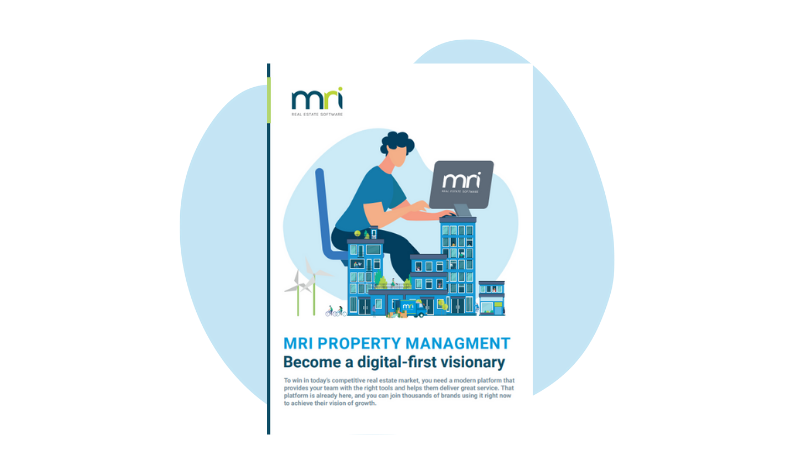SFR Round Table: key themes for the future of Single Family Rental
Our recent online roundtable event, “the next property disruptor: unlocking the opportunity in Single Family Rental through technology” brought together visionaries from organisations serving the Single Family Rental market to share their knowledge around how to invest in the UK SFR market, as well as delving deeper into the operational management of SFR portfolios.
In a lively discussion, our panellists explored the current state and future of the SFR market, as well as the challenges facing this exciting new asset class as it grows.
We’ve summarised the key discussion points in this post. You can watch the full roundtable discussion here.
Investor and tenant priorities are converging around ESG
A key trend identified by our panellists was the increasing importance of ESG driven by the government’s Minimum Energy Efficiency Standards requirements. With a target for all domestic rental properties to achieve a minimum EPC rating of C by 2025, it’s no surprise that potential SFR investors see ESG as a key factor in their decision making and scoring metrics for potential new investments.
Our panellists stressed that this was set to accelerate even further, however, driven by the convergence in both tenant and investor priorities. With net zero developments being filled very quickly and a high level of tenant demand for energy-efficiency features in properties, there’s an alignment between resident and investor interests which is likely to fuel significant further development of energy-efficient properties.
With such a clear direction of travel, our panellists were excited about the role of SFR in driving innovation and setting an example for what’s possible, creating standards for performance and influencing the types of technologies that will be retrofitted to the rest of the UK’s housing stock.
Supply will be a challenge – will tech allow investors to explore second hand stock?
The availability of housing stock for SFR was identified as a key limiting factor for its growth. With supply for new build housing outstripped by demand, it’s likely that SFR investors will struggle to acquire enough developments to meet demand.
While the incoming MEES requirements are likely to drive even more private landlords out of the sector, second-hand housing stock has been floated as a potential solution, but our panellists were sceptical – a disparate portfolio of different grades and types of properties is more difficult to manage, and removes many of the efficiencies around asset management and operational performance which make the sector so attractive to investors in the first place.
With a high number of new entrants to the market looking to deploy funds quickly, it’s likely that some SFR investors will begin to look to second hand stock, and there are a couple of start-ups aiming to use AI and machine learning technology to identify suitable properties. However, our panellists stressed that this was unlikely to make up for the economies of scale – and the opportunities for community building – that a single centralised development could offer.
Data is in its infancy, but will be critical to the sector’s growth
On the topic of data, our panellists explained that with SFR such a new asset class, the level and consistency of reporting data was very low, particularly when compared to more established sectors such as commercial property. However, the demand from investors for data insights is high, and as SFR matures we can expect to see a move from relative data scarcity to a position of abundance.
Industry benchmarking was flagged as a current area of development – the UKAA is currently working on a benchmarking project to begin to capture this information. There’s also a huge level of demand for data on resident demographics and profiling to better understand tenant motivations and requirements, and referencing agencies and tenant portals are being investigated as potential sources for this information.
One area requiring further development is the collection of ESG information. The nature of SFR makes this challenging to collect, as individual tenants are responsible for the management of their own properties, and their behaviour has a huge impact on performance, leaving SFR developers with less control over outcomes than in the commercial or BTR spaces. While Internet of Things technology has the ability to collect this information, GDPR is an issue, posing challenges in data collection and storage to fully understand how SFR residents are performing against benchmarks or even each other in relation to energy usage.
PropTech is essential to reducing gross to net leakage
With efficiency a key priority, our panellists were optimistic about PropTech’s potential to help maximise yield on SFR developments.
Access control and keyless entry was seen as a high-potential, if expensive, area – removing the need to manage and distribute keys for viewings, maintenance and void management could significantly streamline operations and reduce costs. Security was also considered important, particularly given the nature of SFR developments compared to BTR, where properties were separate and potentially more vulnerable.
Asset management was also seen as being a fertile ground for innovation, with technologies like FixFlo praised for their ability to streamline maintenance processes. In the back-office, automating procedures like rental renewals was also seen as a potential time-saver, driving reductions in OPEX.
Tenant experience is a crucial differentiator
Our panellists all agreed that a core element of SFR’s future growth and success was tenant happiness. Happier tenants stay longer and contribute more to the development of strong communities, driving economic and social benefits for investors and residents alike. With the current private rental sector struggling with a poor reputation and generally inconsistent level of service, there’s a clear opportunity for SFR to differentiate itself in the market by delivering an exceptional tenant experience.
Data was understandably seen as a crucial prerequisite for developing tenant experience, and panellists were already focussing on demographic and tenant profiling research as well as resident surveys to get to grips with tenant needs and opinions.
Our panellists also stressed the importance of the “social” aspect of ESG, leveraging the unique ability of SFR to create ready-made communities. Tenant portal technologies were seen as an important method of fostering and moderating community growth, seeding interaction between residents and helping to smooth out misunderstanding or disagreements.
Building for the future of SFR
Our round table discussion emphasised the bright future of SFR, and its potential to drive economic, environmental and social benefits not only within communities but on a wider national scale.
Our panellists are all highly ambitious for the future of SFR as an asset class, and committed to investing in the data and technology required to ensure its success. Many saw current efforts as a down-payment into the long-term brand reputation of SFR, with the goal of building brands that tenants could eventually stay and grow with for life. With brand experience seen as such a key differentiator, Customer Lifetime Value is likely to be an important performance indicator in the longer term.
At MRI, we’re passionate about helping you leverage technology to drive greater operational efficiency and better brand experience. To find out more about how our solutions could help you improve the performance of your SFR developments, get in touch today.
MRI Property Management – Become a digital-first visionary
To win in today’s competitive real estate market, you need a modern platform that provides your team with the right tools and helps them deliver great service. You simply can’t afford to restrain your team and your vision with technology from t…

